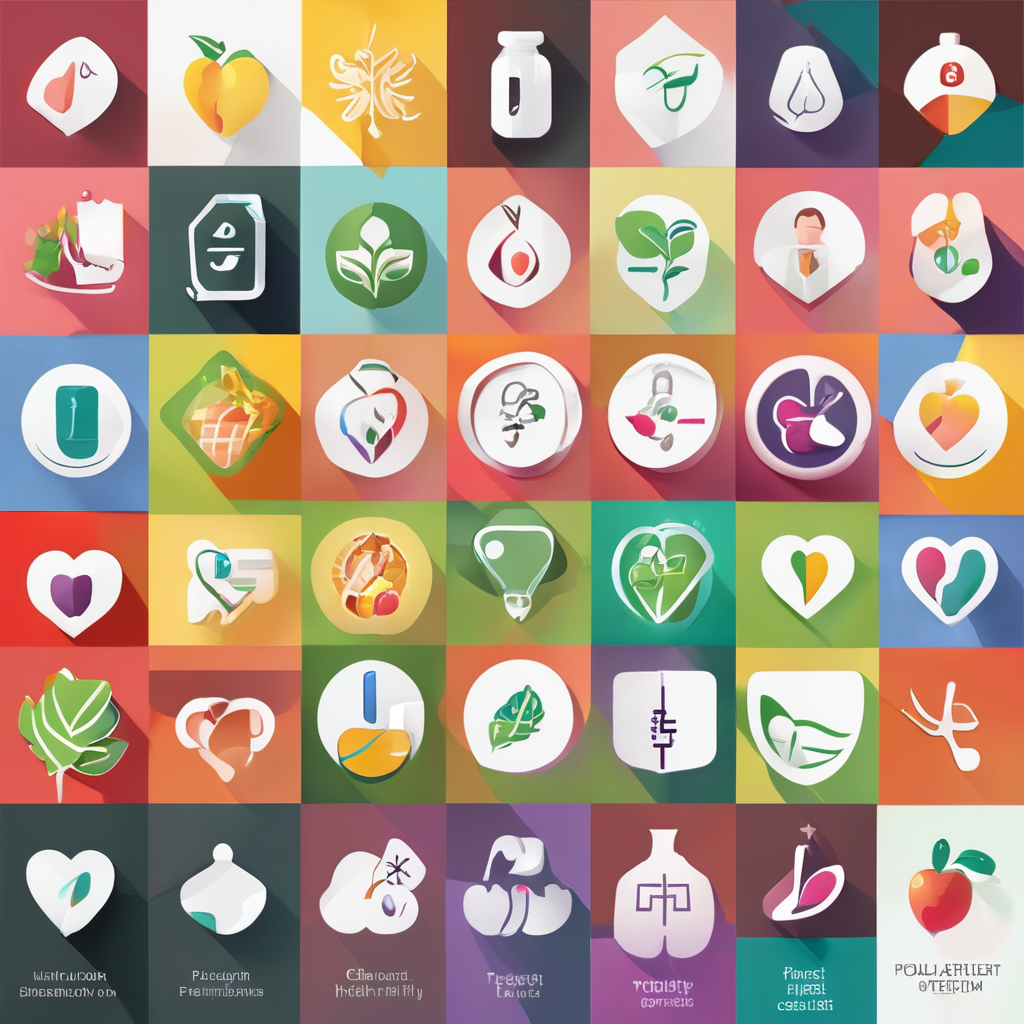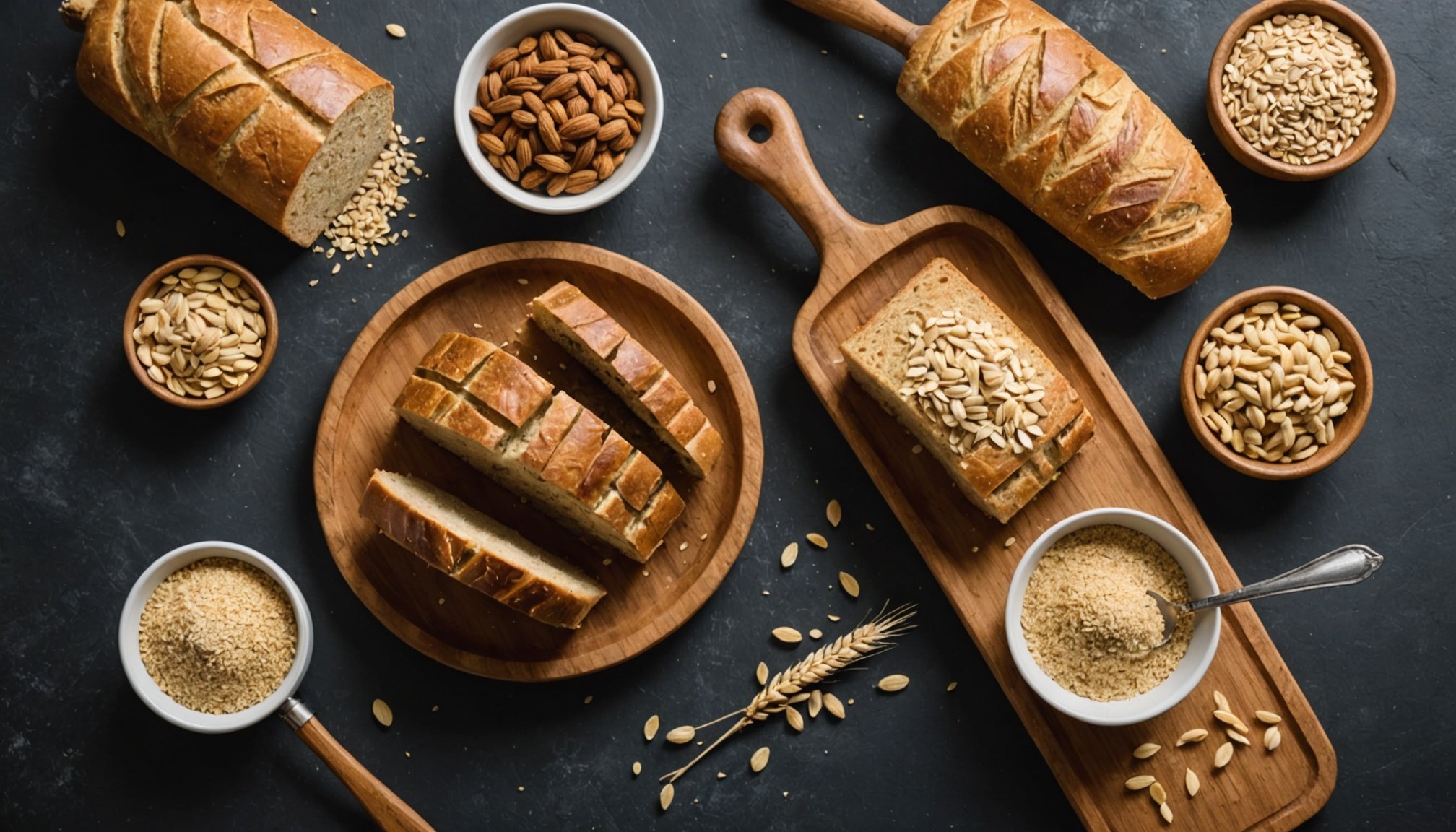Unlocking the Perks: How a Gluten-Free Diet Can Enhance Life for Those with Non-Celiac Gluten Sensitivity
Understanding Non-Celiac Gluten Sensitivity
Non-Celiac Gluten Sensitivity (NCGS) is a condition that has garnered significant attention in recent years, particularly as the awareness and diagnosis of gluten-related disorders have increased. Unlike celiac disease, which is an autoimmune reaction to gluten that causes damage to the small intestine, NCGS does not result in the same level of intestinal damage. However, it shares many similar symptoms, such as abdominal pain, bloating, and fatigue, which can significantly impact an individual’s quality of life.
“Despite its prevalence, we don’t fully understand how gluten affects individuals with non-celiac gluten sensitivity,” notes a researcher involved in a study on gluten sensitivity. “However, emerging evidence suggests that a gluten-free diet can alleviate many of the symptoms associated with NCGS”[3].
Also read : Unlocking Heart Health: How a Low-Salt Diet Can Help Control Hypertension
Symptoms and Diagnosis of NCGS
Individuals with NCGS often experience a range of symptoms that can be quite debilitating. Here are some of the common symptoms:
- Abdominal Pain and Bloating: These are among the most common symptoms, often occurring shortly after consuming gluten-containing foods.
- Fatigue: Many people report feeling unusually tired or lethargic after eating foods with gluten.
- Diarrhea or Constipation: Gastrointestinal issues are prevalent, with some individuals experiencing diarrhea and others constipation.
- Headaches and Joint Pain: These symptoms can vary widely but are often reported by those with NCGS.
- Skin Rashes: Some people may experience skin rashes or itching after consuming gluten.
Diagnosing NCGS can be challenging because the symptoms overlap with those of other conditions, such as irritable bowel syndrome (IBS) and celiac disease. A diagnosis is typically made by ruling out celiac disease and wheat allergy through blood tests and intestinal biopsies, and then observing the improvement of symptoms on a gluten-free diet[5].
This might interest you : Discover How a Plant-Based Diet Can Alleviate Symptoms of Ulcerative Colitis: Unveiling the Benefits
The Impact of a Gluten-Free Diet on NCGS
Adopting a gluten-free diet is the primary treatment for NCGS, and it can have a profound impact on the quality of life for those affected.
Improvement in Gastrointestinal Symptoms
One of the most immediate benefits of a gluten-free diet for individuals with NCGS is the alleviation of gastrointestinal symptoms. Studies have shown that removing gluten from the diet can significantly reduce abdominal pain, bloating, and other digestive issues.
“Following a gluten-free diet often alleviates these symptoms, highlighting the potential benefits of gluten avoidance beyond celiac disease,” explains a medical expert. “This improvement is crucial as it forms the foundation for overall well-being”[3].
Reduction in Inflammation
Gluten has been implicated in promoting inflammation in susceptible individuals. By eliminating gluten, a gluten-free diet may help reduce the risk and severity of chronic inflammation, which is associated with various health conditions, including cardiovascular disease, autoimmune disorders, and certain types of cancer.
“Chronic inflammation has been associated with various health conditions. By eliminating gluten, a potential trigger of inflammation, a gluten-free diet may help reduce the risk and severity of these conditions,” notes a researcher[3].
Positive Effects on Gut Health
A gluten-free diet can positively influence the gut microbiome, promoting a healthier microbial profile. This aspect of gut health improvement is crucial as it forms the foundation for overall well-being.
“Imbalances in gut bacteria have been linked to conditions such as IBS, inflammatory bowel disease (IBD), and metabolic disorders. A gluten-free diet may positively influence the gut microbiome, potentially improving gut-related conditions”[3].
Nutritional Considerations and Challenges
While a gluten-free diet can be highly beneficial for those with NCGS, it also presents several nutritional challenges.
Risk of Nutritional Deficiencies
Gluten-free products often lack essential nutrients found in whole grains, such as fiber, vitamins, and minerals. Common deficiencies include:
- B Vitamins: Particularly B12, which is crucial for nerve function and the formation of red blood cells.
- Fiber: Important for digestive health and satiety.
- Magnesium and Calcium: Essential for bone health.
- Iron and Zinc: Crucial for immune function and overall health.
“Gluten-free products may lead to a very selective diet, especially in the absence of expert professional guides. Macro- and micronutrient imbalance associated with a GFD can lead to an increase in saturated fats and lipids, simple carbohydrates, and sodium, as well as a decrease in proteins, complex carbohydrates, and fibers”[2].
Choosing the Right Gluten-Free Foods
To avoid nutritional deficiencies, it is essential to choose nutrient-rich gluten-free foods. Here are some tips:
- Focus on Whole Foods: Include plenty of fruits, vegetables, lean meats, and whole grains like rice, quinoa, and corn.
- Select Fortified Products: Opt for gluten-free products that are fortified with essential nutrients.
- Consult a Dietitian: A healthcare professional can help you navigate the challenges of a gluten-free diet and ensure you are getting all the necessary nutrients.
Psychological and Social Impacts
Beyond the physical benefits, a gluten-free diet can also have significant psychological and social impacts.
Improvement in Psychological Health
Studies have shown that a gluten-free diet can lead to a positive change in well-being and a significant reduction in depressive states. This is particularly true for women, the elderly, and those with lower educational backgrounds.
“A GFD in CD patients can lead to a positive change in well-being and can induce a significant reduction in depressive states,” notes a study on the psychological impacts of gluten-free diets[2].
Social Challenges and Support
Living a gluten-free lifestyle can present social challenges, such as dining out or attending social gatherings where food is involved. However, with the increasing awareness and availability of gluten-free products, these challenges are becoming more manageable.
“It’s important to be extra mindful of what you eat, especially in social settings. However, many restaurants now offer gluten-free options, and there is a growing community of people living gluten-free who can provide support and advice”[5].
Practical Advice for Adopting a Gluten-Free Diet
If you are considering adopting a gluten-free diet due to NCGS, here are some practical tips to help you get started:
Understanding Gluten-Containing Foods
Gluten is found in wheat, barley, rye, and triticale (a cross between wheat and rye). Here are some common foods that contain gluten:
- Bread and Baked Goods: Most traditional bread, cakes, and pastries contain gluten.
- Pasta and Cereals: Many types of pasta and cereals are made from wheat.
- Processed Foods: Many processed foods, such as sauces and snacks, may contain gluten.
Reading Labels
When shopping for gluten-free products, it is crucial to read labels carefully. Look for certifications like the Gluten-Free Certification Organization (GFCO) or the Celiac Support Association (CSA).
“Always read labels carefully to ensure the product is gluten-free. Many products are now labeled as such, making it easier to make informed choices”[5].
Cooking and Preparing Gluten-Free Meals
Cooking gluten-free meals can be simple and delicious. Here are some tips:
- Use Gluten-Free Flours: There are many types of gluten-free flours available, such as almond flour, coconut flour, and rice flour.
- Experiment with Recipes: There are countless gluten-free recipes available online, and experimenting with different ingredients can help you find dishes you enjoy.
- Avoid Cross-Contamination: If you are cooking for someone with a severe gluten intolerance, ensure that you avoid cross-contamination with gluten-containing foods.
A gluten-free diet can be a game-changer for those with non-celiac gluten sensitivity, offering relief from debilitating symptoms and improving overall health and well-being. While there are challenges to navigate, such as ensuring adequate nutrition and managing social situations, the benefits far outweigh the difficulties.
As Professor Luca Marciani from the University of Nottingham’s School of Medicine notes, “Using MRI and microbiome analysis, we have gained new insights into how a gluten-free diet impacts gut physiology and microbiota alterations. These findings open possibilities for developing prebiotic treatments to counteract the gluten-free diet’s negative effects on gut microbiome health”[1].
If you suspect that gluten may be affecting your health, it is essential to discuss a gluten-free diet with a healthcare professional. With the right guidance and support, you can make informed choices to optimize your health and enhance your quality of life.
Table: Comparison of Gluten-Free and Gluten-Containing Diets
| Aspect | Gluten-Free Diet | Gluten-Containing Diet |
|---|---|---|
| Gastrointestinal Symptoms | Significant reduction in abdominal pain, bloating, and other digestive issues. | Presence of gastrointestinal symptoms like abdominal pain and bloating. |
| Inflammation | Potential reduction in chronic inflammation. | May trigger or exacerbate chronic inflammation. |
| Gut Health | Positive influence on the gut microbiome. | Can lead to imbalances in gut bacteria. |
| Nutritional Content | Risk of deficiencies in B vitamins, fiber, magnesium, calcium, iron, and zinc. | Generally higher in essential nutrients like fiber, vitamins, and minerals. |
| Psychological Health | Improvement in well-being and reduction in depressive states. | No significant impact on psychological health. |
| Social Challenges | Requires careful planning and awareness in social settings. | No significant social challenges. |
| Food Variety | Increasing availability of gluten-free products, but may require more planning. | Wide variety of food options available. |
Detailed Bullet Point List: Tips for Maintaining a Balanced Gluten-Free Diet
- Focus on Whole Foods: Include plenty of fruits, vegetables, lean meats, and whole grains like rice, quinoa, and corn.
- Select Fortified Products: Opt for gluten-free products that are fortified with essential nutrients.
- Consult a Dietitian: A healthcare professional can help you navigate the challenges of a gluten-free diet and ensure you are getting all the necessary nutrients.
- Read Labels Carefully: Always check for certifications like the Gluten-Free Certification Organization (GFCO) or the Celiac Support Association (CSA).
- Avoid Cross-Contamination: Ensure that you avoid cross-contamination with gluten-containing foods, especially if you are cooking for someone with a severe gluten intolerance.
- Experiment with Recipes: There are countless gluten-free recipes available online, and experimenting with different ingredients can help you find dishes you enjoy.
- Stay Informed: Keep up-to-date with the latest research and guidelines on gluten-free diets to ensure you are making the best choices for your health.
By following these tips and staying informed, you can unlock the full benefits of a gluten-free diet and enhance your life in meaningful ways.











